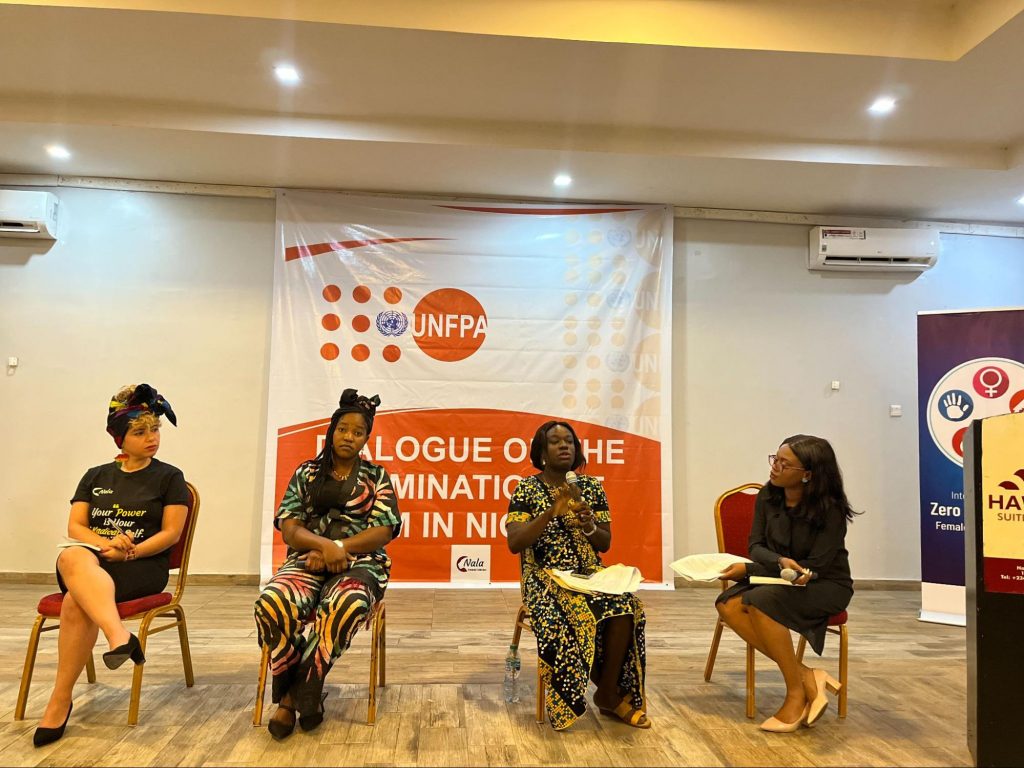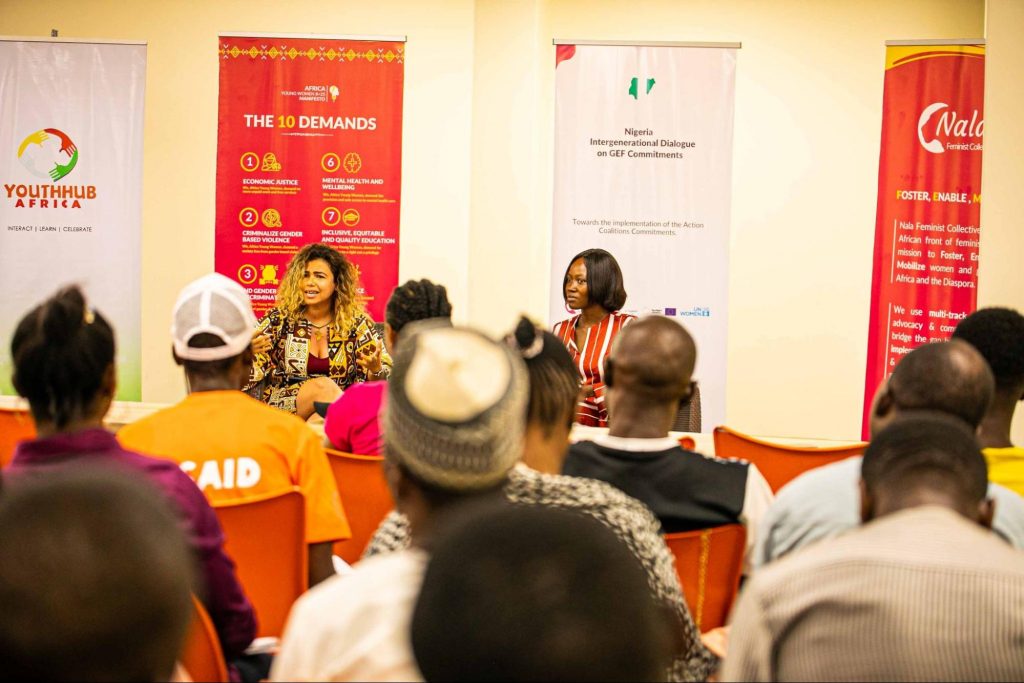We came together as a council in Abuja not only to plan and to think on how to move forward as a collective, but to explore at length the multiple ways through which we can support young African women and feminist movements.
We held roundtables with young women to unpack the multiple layers of exclusion they encounter in their feminist and activist work. We are grounded on the premise that we cannot move without the generation coming after. Our solidarity with them and their solidarity with us is the only way forward. We learnt, we laughed and questioned how we could hold governments accountable for their commitments at ending gender disparity and violence.
Nigeria Mobilisation and Advocacy Mission
Shortly after the Nala Inaugural Summit, Nala Council Aya Chebbi and Oluwaseun Ayodeji Osowobi led a mission on the ground in Nigeria advocating for accountability on the GEF commitment which the Nigerian government has made at the Generation equality forum in Paris. In bilateral meetings with the EU commission in Nigeria, the French Embassador to Nigeria, Malala Fund, the MacArthur Foundation, and multiple young women and youth led organisations.
This was also an opportunity to brief different stakeholders about the work of Nala and the progress made since the launch of Nala on July 1st of last year. The council also leveraged these meeting to explore funding opportunities, and braintormed ways of dismantling funding schemes that fail to benefit young women working in grassroot movements.
Intergenerational dialogues and feminist workshops
Aya Chebbi and Oluwaseun Ayodeji Osowobi have also co-hosted an intergenerational dialogue with UN Women and Youth Hub Africa on GEF commitments, as well as an intergenerational dialogue on Ending FGM with UNFPA.
Both spaces brought together young women and men to think collectively of the road ahead of us as we put our efforts together to #EndFGM and to hold governments accountable for young women’s right. This is central to the work of Nala and amongst our Manifesto demands.
In solidarity with Nigerian feminsit activists
Throughout the mission, the council supported the advocacy efforts of Nigerian feminists.
They led a visit to Voice of Disability Initiative to unravel the challenges faced by the communities leading work for disability rights. Moreover, in partnership with Tech Her Nigeria, Aya Chebbi and Oluwaseun Ayodeji Osowobi hosted a workshop for young women to discuss what advocacy means and ways to channel resources for mentorship, solidarity and partnerships.
All throughout, the council took a stand against Gender-Based Violence (GBV) in Nigeria through Nalafem Abuja Declaration in solidarity with Nigerian women and girls and call to action to end GBV.
#NalaMission #NalaSummit #IamNala
This was also an opportunity to brief different stakeholders about the work of Nala and the progress made since the launch of Nala on July 1st of last year. The council also leveraged these meeting to explore funding opportunities, and braintormed ways of dismantling funding schemes that fail to benefit young women working in grassroots movements.[/ld_fancy_heading]
The panel was organized by Nala Feminist Collective (Nalafem), and moderated by Siouar Douss, Nalafem Coordinator.
[/ld_icon_box]The panel was organized by Nala Feminist Collective (Nalafem), and moderated by Siouar Douss, Nalafem Coordinator.
[/ld_icon_box]










